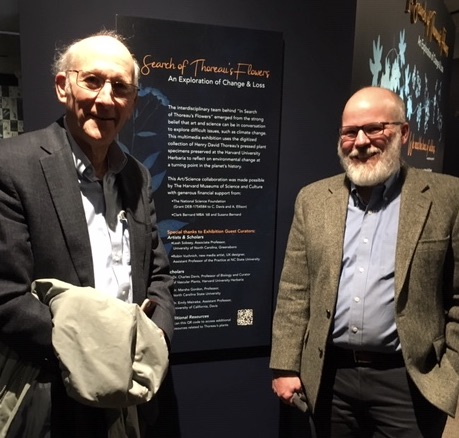By Richard B. Primack
“The news that we hear, for the most part, is not news to our genius. It is the stalest repetition.”
-Henry David Thoreau in “Life without Principle”
A new exhibit at the Museum of Natural History at Harvard University, entitled “In Search of Thoreau’s Flowers” features our research using the records of Henry David Thoreau to study the effects of climate change. For the past 20 years, students and colleagues associated with our group have been carrying out fieldwork, analyzing data, and publishing papers on this topic.
The exhibit is a collaboration between scientists and artists to make the climate change message more accessible to the general public.
 |
| Henry David Thoreau made detailed flowering time observations during the 1850s, which we repeated over the past 20 years |
The exhibit emphasizes how species in Concord are changing in their flowering times and their abundances over the past 170 years. Species which are most able to adjust their flowering times in response to a warming climate are able to persist in landscape.
.jpeg) |
| Responsive species tend to persist in the face of climate change. Species not able to adjust, tend to decline. |
Here is a link to the exhibit:
Here is a link to a summary of our research on climate change in Concord:


No comments:
Post a Comment